


When we survey the treatment that God has received from philosophers down through the millennia, it is not hard agree with Unamuno’s assessment of the god of philosophy as “a dead thing”.
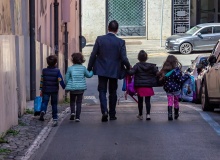
A survey concludes that 9 in 10 attend their church’s worship service every week. 63% of respondents do volunteer work and 40% identify with right-wing parties.
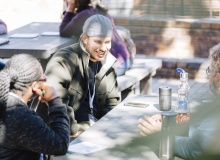
IFES calls Christian university students to reach out to foreigners: “What if every student befriended one international student?”

The workers of Christian Aid Ministries, including 5 children, were abducted in October. Christians are called “to continue to pray for the full resolution of this situation”.

Being in relationship with Jesus is not just the end goal of ministry, but it is also the means by which genuine transformation occurs.

The German state opened the festivities of the year dedicated to the translation of the New Testament on Reformation day under the motto “Translating the World”.
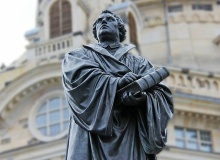
On 31 October the Protestant Reformation is commemorated around the world, just over five centuries after Luther nailed his 95 theses in Wittenberg (Germany).
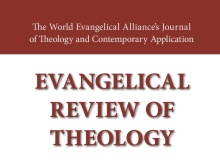
There has been a growing awareness of the need for a journal that could serve Spanish-speaking regions, such as Latin America, Spain, and Equatorial Guinea.
.jpg)
The technology-evangelists’ goal is to provide products and services that are so compelling, easy to access, and intuitive to use that we can’t help but adopt them.
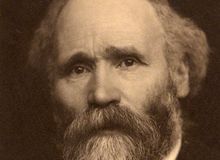
His efforts to reform society were driven by a deep faith in Jesus and a commitment to the principles set out in the Sermon on the Mount. By Jacob Dunn.

Miguel Wickham analyses the IPCC climate experts' report, which warns of serious consequences for habitability if temperatures continue to rise as a result of human action.

Over 1,400 people have died in Haiti earthquake and hundreds are still missing. Christian organisations say their staff are safe but the situation is very worrisome.

May we preach so that our listeners walk away pondering the character, the heart, the goodness, the grace of God.

This section aims to suggest areas in which we may ask questions about the life of a biographical subject, and some mistakes to avoid in the study of lives. By Jacob Dunn.

We have become used to letting others, ourselves, and even God down.
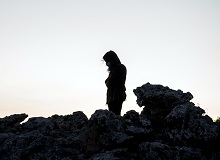
What are your reasons to be anxious or worried today? Identify them and make a translation: turn them into prayer requests.

The Refugee Highway Partnership and the WEA encourage churches to “highlight the plight of refugees, pray for and with them and consider unique role churches can play”.

Martin Luther’s famous 95 Theses Against Indulgences was originally a written list academic conversation starters. His questions and statements were like a string of tweets ahead of their time. They were dismissed by the authorities as errant, dangerous and divisive.

The peace of Christ is not primarily tranquillity, but security, it is not characterized by the absence of danger, but by the presence of Christ in the turbulence of the waterfall, it is not so much an emotion as a position.

Participants from all over the world “received encouragement and inspiration through specialized training, mentoring and networking”, say the organisers of the European Leadership Forum.
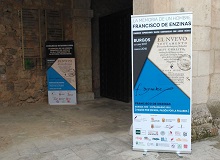
I would like to suggest that in the area of ecclesiology, Spanish Protestantism had the most biblical, and therefore the most catholic, vision of any group of the Reformation.
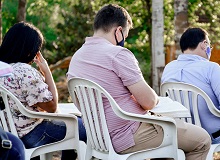
Law professor Javier Martínez Torrón has coordinated the book “Covid-19 and religious freedom”, which compares how governments like Spain, United Kingdom, Italy or the United States, related to faith groups during the pandemic.

Evangelicals may be approaching a time when we are ostracised and where we need to have confidence in what we believe and what the Bible teaches because we will not receive endorsement for those beliefs from the world around us.

It is on the cross that the character of Christ reaches its greatest splendour. During the hours of deepest darkness, his words shine like radiant gold.

Archaeologists discovered the scrolls in the Judean Desert. They also found the world's oldest fully intact basket, a 6,000-year-old mummified child and a cache of rare coins.

Las opiniones vertidas por nuestros colaboradores se realizan a nivel personal, pudiendo coincidir o no con la postura de la dirección de Protestante Digital.